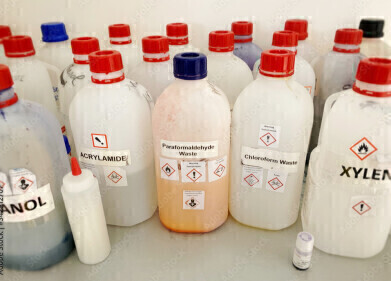Supercritical fluid (SFC), Green Chromatography
Is There a Herbal Treatment for Parkinson's Disease? - Chromatography Investigates
Dec 04 2018
Parkinson's disease is a condition where the brain becomes progressively more damaged over time. It is estimated that around 1 in 500 people are affected by Parkinson's disease, meaning that there are over 125,000 sufferers in the UK. It tends to affect people over the age of 50 and men are more likely to suffer from Parkinson’s disease.
Although there is currently no cure for Parkinson’s disease, there are treatments that can improve the quality of life of people who suffer from Parkinson’s disease. A recent paper published in the journal Scientific Reports - Triple herbal extract DA-9805 exerts a neuroprotective effect via amelioration of mitochondrial damage in experimental models of Parkinson’s disease - has looked at one traditional herbal treatment to see if it offers any hope for sufferers.
What is Parkinson’s disease?
Parkinson’s disease is a chronic neurodegenerative disorder. It is caused by a loss of dopaminergic neurons in the brains, this leads to a decrease in the dopamine levels in the part of the brain known as the basal ganglia. Symptoms start to appear when the brain stops making enough dopamine. With dopamine playing a key role in movement, a lack of dopamine leads to a loss of movement control. Three of the main symptoms of Parkinson’s are tremors, slowness of movement and stiffness due to muscle rigidity.
What causes the loss of nerve cells is not known - but most researchers suspect a combination of genetics and environmental factors, and several of these factors have been identified. It has been proposed that the risk factors affect mitochondrial dysfunction. Specifically, some of the genes identified as associated with some types of Parkinson’s disease are also associated with mitochondria functionality - especially in some reactions in the outer membrane of mitochondria.
Three herbs to aid the symptoms
In the paper referenced above, the researchers looked at the combination of three herbal medicines used in Asian traditional medicine - Moutan cortex, Angelica Dahurica root and Bupleurum root - to treat various diseases associated with oxidative stress. They produced a triple herbal extract known as DA-9805 and analysed it using high performance liquid chromatography. The use of chromatography to analyse complex mixtures is discussed in the article, Column Technology for Achiral SFC Separations.
The team carrying out the research found that the triple herbal mix had a positive effect on mitochondria damage. They stated:
‘…results demonstrate that the triple herbal extract DA-9805 showed neuroprotective effects via alleviating mitochondria damage in experimental models of PD. We propose that DA-9805 may be a suitable candidate for disease-modifying therapeutics for PD.’
Events
Jan 20 2025 Amsterdam, Netherlands
Feb 03 2025 Dubai, UAE
Feb 05 2025 Guangzhou, China
Mar 01 2025 Boston, MA, USA
Mar 04 2025 Berlin, Germany














